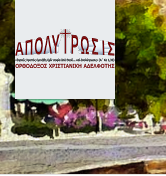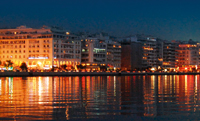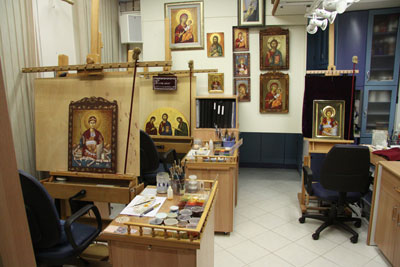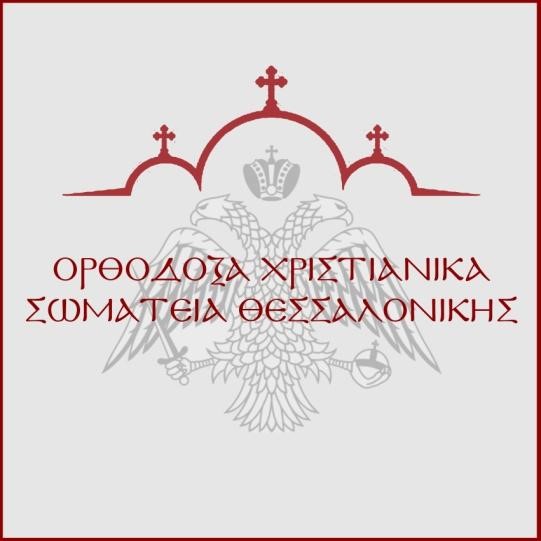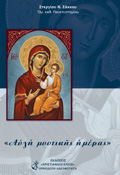Translation from the article:
Εὐαγγέλου Ἀλ. Δάκα, Πορεία σταυρική, περιοδ. "Ἀπολύτρωσις" 75 (2020) 68-69
(Evangelos Al. Dakas PhD in Theology and Philologist)
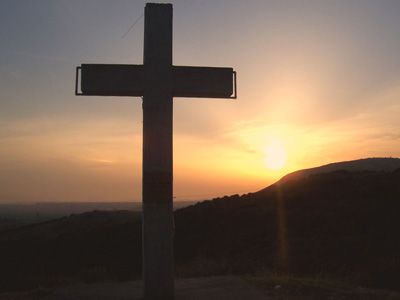 Lent is a path to crucifixion. In order to reach Holy Easter and experience the Resurrection of Christ - the most desirable dream of mankind - the faithful must first be crucified, like Him, there is no other way. If they really want to enjoy the life of the Lord, they must also participate in His death. We are not superior and more competent than our Lord. Since He walked towards His death, although He could have avoided it, it is our duty to do exactly the same (see Mt 10:24 and 1 Pet 2:21).
Lent is a path to crucifixion. In order to reach Holy Easter and experience the Resurrection of Christ - the most desirable dream of mankind - the faithful must first be crucified, like Him, there is no other way. If they really want to enjoy the life of the Lord, they must also participate in His death. We are not superior and more competent than our Lord. Since He walked towards His death, although He could have avoided it, it is our duty to do exactly the same (see Mt 10:24 and 1 Pet 2:21).
However, how does one die with Christ? How does the Cross of our Lord become an experience of the faithful?
The first way that leads us to the crucifixion and the tomb along with Christ is certainly repentance. Repentance means denying the life of the antichrist world, something I haven’t done yet, and start obeying the commandments of God. But this choice is a real cross, it is essentially a martyrdom. Two laws are fighting within me: the law of the Spirit and the law of decay. The law of the Spirit requires ascension, labour and toil, while the law of decay is easy and sweet in its taste. I choose the first, but my whole being slips into the second (Rom 7: 14-25). However, if I really want to live with God’s Son and put on His glory, I will not hesitate for a moment; no matter how much it hurts, I will kill the law of corruption and I will be dead for the world (see Ga 6:14).
The second way is prayer. In fact, the period of Lent is mainly a period of prayer, since the Church includes in its daily program numerous, long and particularly “repentant” services. Prayer means getting rid of all I want and my desires, whatever they may be, and submitting my ego to the obedience of Christ. Without a doubt, this is not pleasant for the people, because it means self-denial and quite often humiliation and pain. In specific, our prayer during Lent must repeat the Lord's prayer in Gethsemane: " Father, if you are willing, take this cup from me; yet not my will, but yours be done” (Lk 22:42), and it must have something of its mortal agony, the same sweat and blood (Lk 22:44).
The third way to participate in the mystery of Golgotha is forgiveness. Forgiveness means being able to «συν-χωρώ» that means to be in the same place with the others. That is, to offer something from the vital space of my own self to the ones who have become my enemies, to embrace them, no matter how much they have hurt me. Of course, this is not easy. It certainly presupposes a sacrificial spirit and lots of times it requires from our soul to touch Hades. Yet even this very death was first taught, in a touching way, by the crucified Jesus. The Lord on the Cross, naked, covered in blood and deep in the abyss of pain, forgave and even justified His own crucifiers. “Father, forgive them, for they do not know what they are doing.” (Lk 23:34). We, therefore, have a prototype. We are not called to this martyrdom without guarantees. Before us, God accepted it for Himself, and in fact during His most hard embitterment from His own creature.
A fourth way that leads to the Cross is fasting. Fasting aims to teach us a very basic lesson: that we will never desire the unspeakable goods of heaven, if we remain slaves to the earthly goods of this world. He who fasts becomes a disciple in the Kingdom of God, which "is not a matter of eating and drinking" (Rom 14:17). Certainly, abstinence from food is a torment, a death. And it is no coincidence that the initial fasting of the Church, the forerunner of Lent, was closely connected with the celebration of the Lord's death. When John the Baptist’s disciples asked Jesus why the Pharisees and they themselves fasted, while Jesus’ disciples did not, the Lord Himself prophesied that it is not possible for those who are feasting at the wedding table and have the groom among them, to fast. The time will come when the bridegroom will be taken from them and then they will fast (see Mt 9:14-15). And that time has come. It is the Great Lent. The bridegroom Christ was abducted and led to death, and the marriage was changed into a slaughter.
These four roads are not choices. You can’t choose only the one you like most. All believers must walk consistently on all of them. Sin has sown millions of weeds in our miserable self, that is why varied and hard work is required from the farmer. Therefore, all we have to do is put forth all our forces and get started. Our effort, graceful from the mercy of the Lord, will not take long to blossom all around. And if we fight with the same faith to the end, we will enjoy the glorious and immortal fruit of the resurrection.
Copyright © 2021 by Orthodox Christian Association «ΧΡΙΣΤΙΑΝΙΚΗ ΕΛΠΙΣ» ΟΡΘΟΔΟΞΗ ΑΔΕΛΦΟΤΗΤΑ. Used by permission. All rights reserved.

